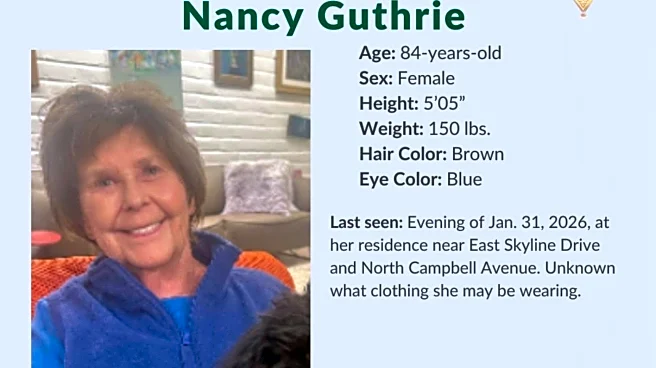Rapid Read • 8 min read
Eva Victor and producer Adele Romanski, alongside comedian Rose Matafeo, participated in a discussion at the Edinburgh International Film Festival regarding the film 'Sorry, Baby.' The film, featuring Victor as Agnes, a literature professor dealing with a traumatic event, premiered at Sundance and was picked up by A24 for a theatrical release. During the event, Romanski emphasized the importance of having mental health coordinators on film sets, a practice not widely adopted in the U.S. film industry. She highlighted the unpredictable nature of film production and the potential impact on crew members' mental health. Victor also discussed the role of intimacy coordinator Kayleigh Kane in choreographing scenes involving panic attacks, stressing the importance of creating a safe environment during filming.
AD
The call for mental health coordinators on film sets reflects a growing awareness of the psychological impact of filmmaking on cast and crew. This initiative could lead to improved working conditions and mental health support in the entertainment industry, potentially reducing stress and trauma associated with intense filming environments. By advocating for these roles, Victor and Romanski are pushing for a cultural shift towards prioritizing mental health, which could influence industry standards and practices. This change may benefit actors, directors, and crew members by providing necessary support and fostering a safer, more inclusive work environment.
The discussion at the Edinburgh International Film Festival may spark further conversations within the film industry about the implementation of mental health coordinators. As awareness grows, industry leaders and production companies might consider integrating these roles into their standard practices. This could lead to policy changes and new guidelines for film production, emphasizing mental health support. The potential adoption of these roles could also influence international film sets, encouraging a global shift towards prioritizing mental health in the entertainment industry.
The advocacy for mental health coordinators on film sets highlights broader issues of mental health awareness and support in the workplace. It raises questions about the ethical responsibility of employers to ensure the well-being of their employees, particularly in high-stress environments like film production. This movement could contribute to a larger societal conversation about mental health, encouraging other industries to consider similar support systems. Additionally, it may lead to long-term changes in how mental health is perceived and addressed in professional settings.
AD
More Stories You Might Enjoy












